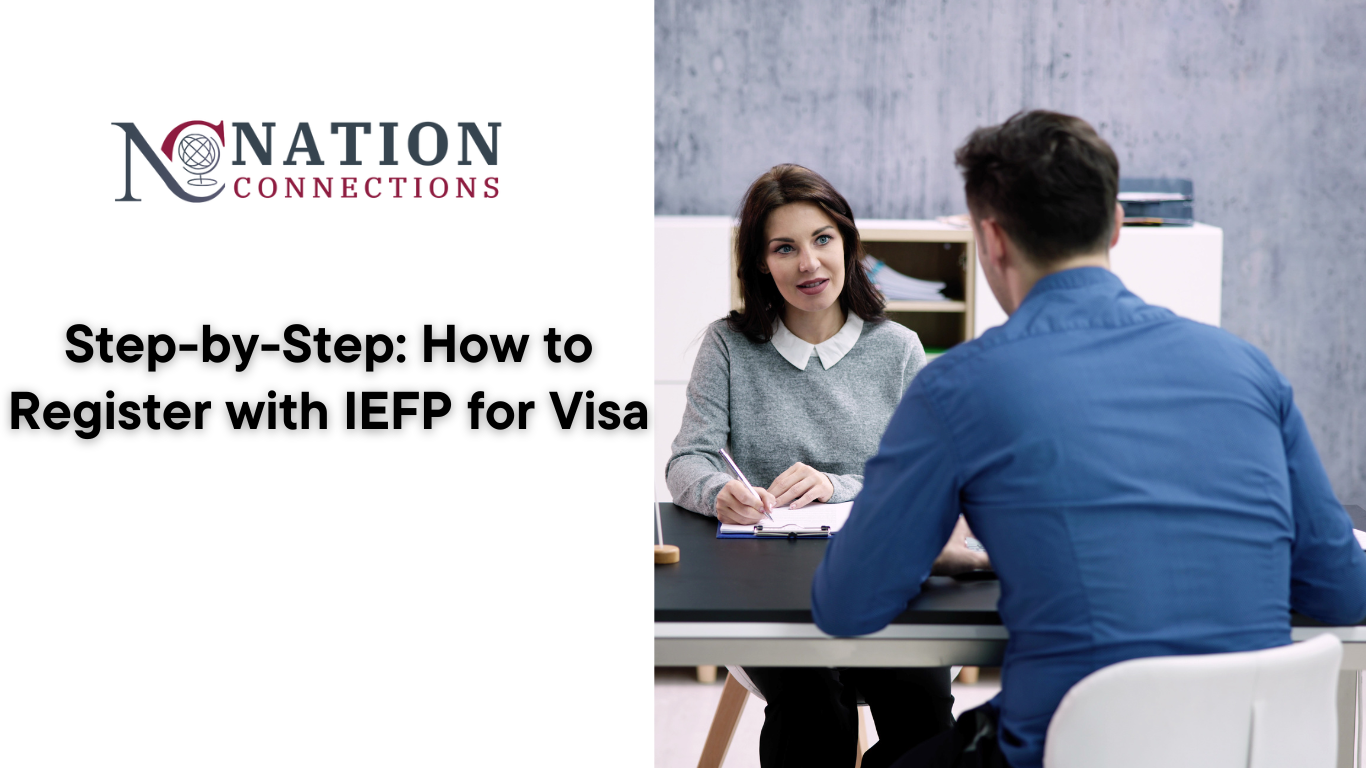
If you’re considering relocating to Portugal for work or residence purposes, you may have come across a crucial part of the legal process—registering with IEFP (Instituto do Emprego e Formação Profissional). This registration is especially important when applying for certain visa types, particularly those tied to employment or job-seeking.
Whether you’re applying for a D7, D8, or job-seeker visa, here’s a step-by-step guide that makes the IEFP registration process clear and manageable.
IEFP is Portugal’s national public employment service, responsible for managing labor policies, training, and job placement. Foreign nationals often need to register with IEFP to:
Show they’re actively seeking employment
Access professional training or career services
Comply with visa application requirements
If your visa type demands proof of job-seeking intent or employment support, this registration becomes a key part of your documentation.
Not everyone is required to register with IEFP, but it is mandatory or highly recommended for:
Non-EU job-seekers in Portugal
Applicants for the Job Seeker Visa
Residents transitioning to work visas
Students converting their status to employment
Before heading to an IEFP office or starting your online application, ensure you have the following:
Valid passport
Visa or legal residence proof
NIF (Número de Identificação Fiscal) – your tax identification number
NISS (Social Security Number) – if applicable
Portuguese address
Portuguese phone number and email address
Updated CV (preferably in Portuguese)
IEFP has offices throughout Portugal. Use the IEFP Office Locator to find the nearest one to your registered address.
Ensure you have both original and photocopies of your:
Passport
Residency visa
Proof of address
NIF
NISS (if you have one)
CV in Portuguese
Also, prepare a short motivation explaining your employment goals if you’re applying under a job-seeker category.
Some IEFP offices allow walk-ins, while others may require an appointment. It’s best to call ahead or check their availability online.
Once at the office:
You’ll be interviewed briefly
A staff member will register you in their system
You’ll complete a job seeker’s form outlining your qualifications and career goals
You may be asked about your language skills, previous jobs, and expectations in Portugal.
After processing, you’ll receive:
A certificate of registration
Your employment status in the IEFP system
Access to job alerts, training courses, and employment resources
This certificate can be submitted as part of your visa application documents.
As of now, full online registration is limited to Portuguese citizens and EU residents. Non-EU nationals typically must register in person. However, IEFP is gradually digitalizing, so always check the IEFP website for updates.
Access to job fairs and professional networking events
Eligibility for vocational training
Assistance with CV building and interview prep
Enhanced chances for visa approval due to employment focus
Not translating your CV into Portuguese
Missing documents (especially NIF and proof of residence)
Inaccurate or inconsistent information
Delaying your registration beyond visa deadlines
Start actively applying for jobs through IEFP’s portal
Join language and skill courses if offered
Keep your profile updated
Collect any proof of job-seeking efforts to strengthen your visa case
Typically, the in-person process takes 30–60 minutes. You’ll get your certificate either immediately or within a few days, depending on the office workload.
The Job Seeker Visa requires applicants to:
Register with IEFP
Submit job-seeking evidence regularly
Prove active engagement with employment services
IEFP becomes not just a formality, but a core part of your immigration journey.
Yes, registration is completely free of charge. There are no application or administrative fees.
No. You must have at least temporary legal status in Portugal to register with IEFP. Tourists and overstayers are ineligible.
Attend all training and workshops
Network during IEFP events
Ask your advisor for tailored job offers
Keep communication open via email
Can I register with IEFP before arriving in Portugal?
No. You must be physically in Portugal and hold a valid visa or residence permit.
What happens if I don’t register with IEFP?
You may face issues with your visa application, especially if it’s job-related.
Is IEFP available in English?
Most communication and paperwork are in Portuguese. Take a translator or use translation apps for clarity.
Do I need to update my IEFP profile?
Yes, update your profile if you change address, job goals, or qualifications.
Can IEFP help me find a job?
Yes, they offer job listings, referrals, and training to match you with suitable roles.
Is IEFP connected to SEF or Immigration?
While not directly, their data is often referenced during visa assessments, especially for job-seeking purposes.
Registering with IEFP is more than just checking a box for your visa—it’s your gateway to employment integration in Portugal. With proper preparation, attention to detail, and a proactive mindset, you’ll not only boost your visa chances but also set yourself up for long-term success in the Portuguese job market.



